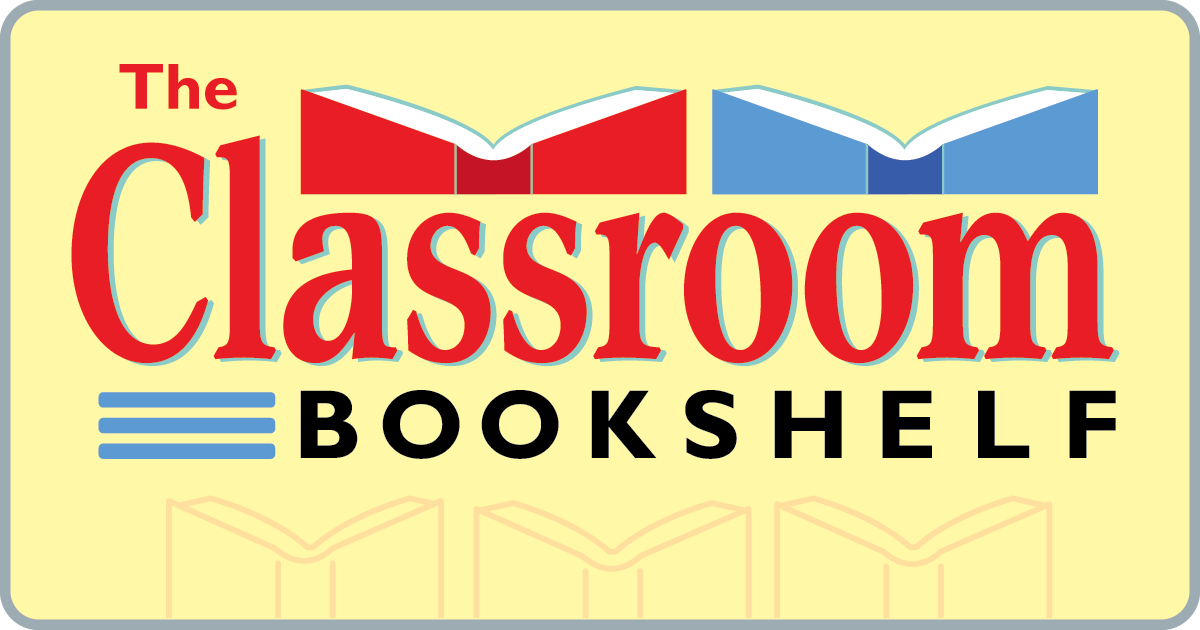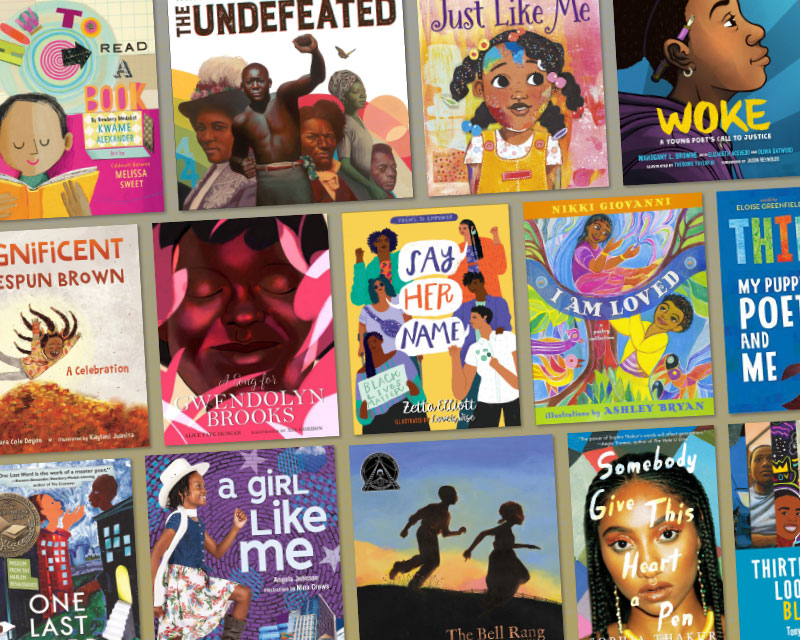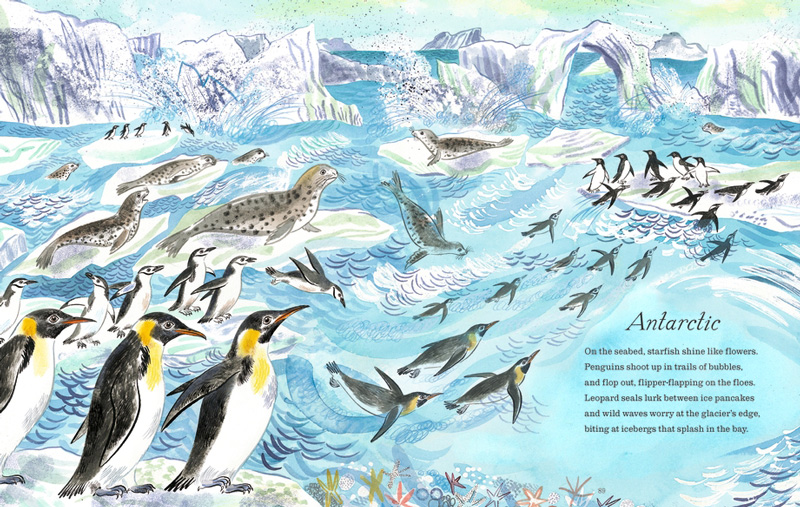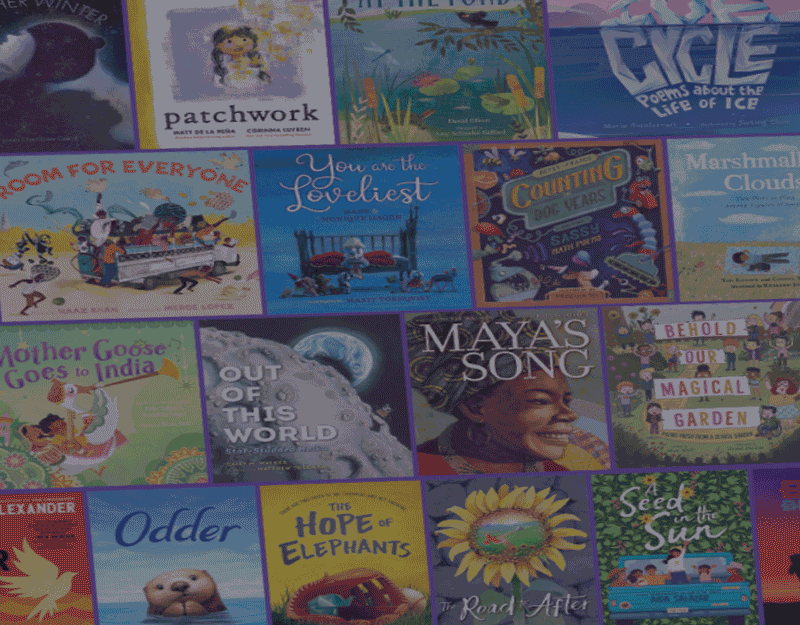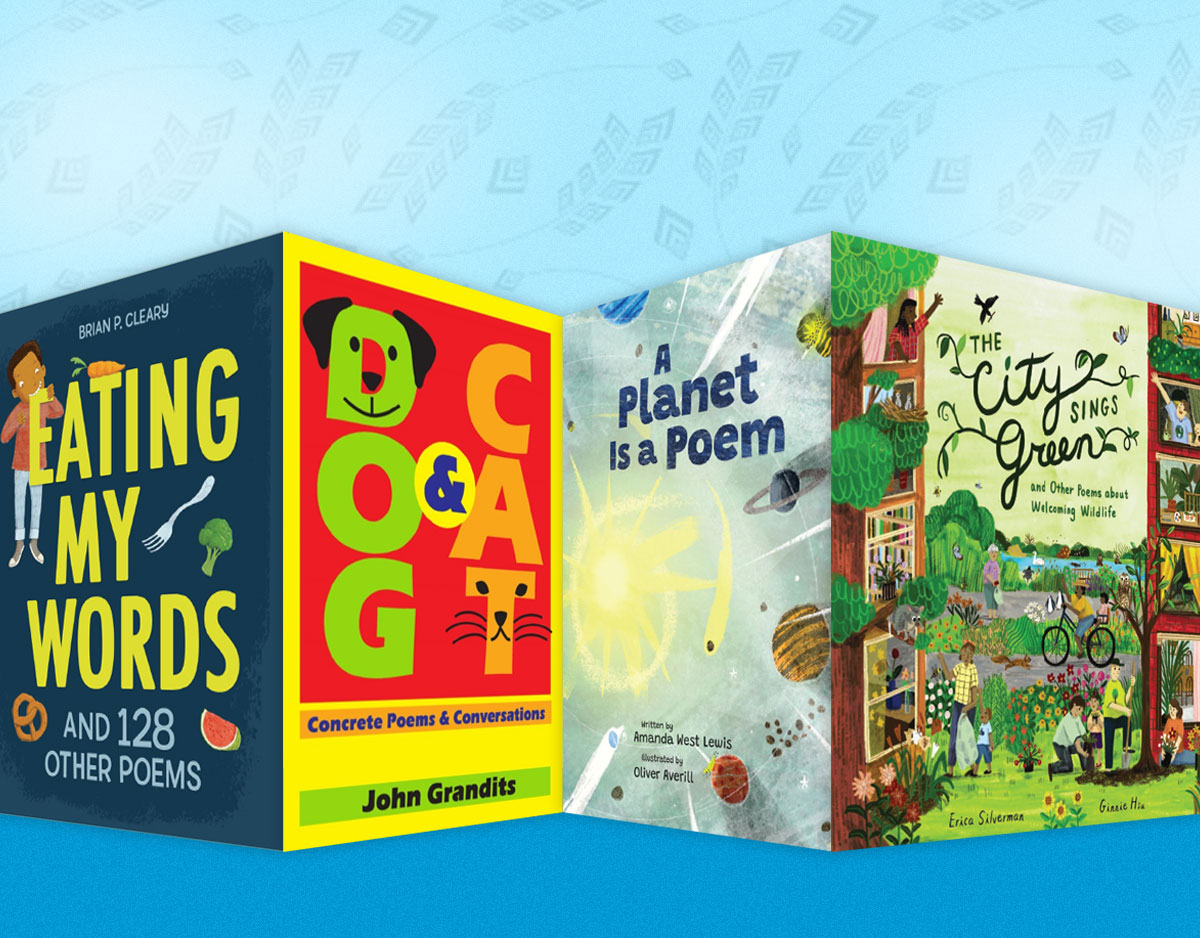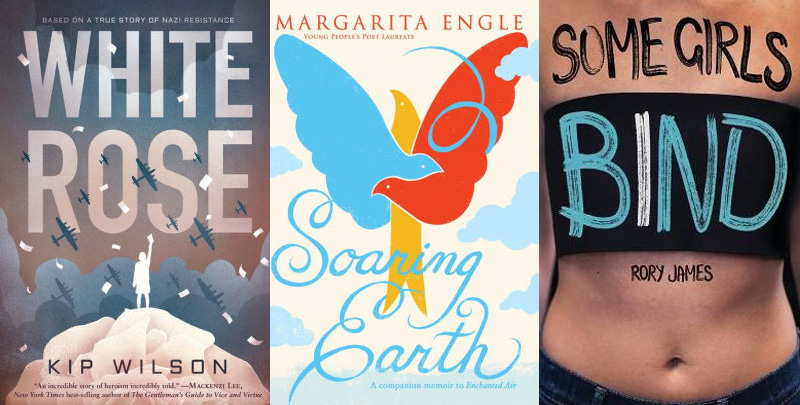Will’s Words: How William Shakespeare Changed the Way You Talk
Will’s Words: How William Shakespeare Changed the Way You Talk
Written by Jane Sutcliffe; Illustrated by John Shelley
Published by Charlesbridge, 2016
ISBN # 978-1-58089-638-2
Grades 3 and up
Book Review
“The more people said all those words, the more they forgot that they were William Shakespeare’s words.” Indeed, it is Shakespeare’s ubiquitous contribution to the English language that grounds Will’s Words: How William Shakespeare Changed the Way You Talk, distinguishing it from other picturebook biographies about the Bard. Author Jane Sutcliffe begins the text with a disclaimer: that she actually did mean to write another biography about the famous playwright and the Globe Theatre, but that Shakespeare’s words kept infiltrating her own as she tried. And so, Sutcliffe gives in, accentuating in bold font the language that Shakespeare coined as she continues with her story. To emphasize how pervasive Shakespeare’s words are, she highlights the single, now mundane terms (e.g., excitement, well behaved, and all of a sudden) alongside the delectable and brilliant phrases of the poet (e.g., laughed themselves into stitches, with bated breath, and into thin air). Moreover, each term is further spotlighted in a side text box that explains what it means and in which of Shakespeare’s works it appears. Illustrator John Shelley provides watercolor, pen, and ink double-page spreads that meticulously detail scenes in Shakespeare’s life and plays, offering readers intricate layers of additional information. An author’s postscript, timeline, and bibliography are included, prompting readers toward more inquiry and resources about Shakespeare’s work and life. For its focus on these rich additions to the English language, as well as the illustrious person who furnished them, Will’s Words is a welcome addition to any ELA class.
Teaching Ideas and Invitations
Grades 3 and up
- Will’s Words and Phrases in Everyday Life. Prepare a list of the bolded words and phrases, and share the list with students before they read the book. Have them work in pairs or small groups to identify which ones they have heard before, which ones hear on a regular basis, and which ones they already know the meaning of. For those that they don’t know, provide examples of their use in everyday speech and have students use context clues to figure out their meanings. It could also be engaging and fun for students to role-play scenarios in which the phrases are used. You might want to browse some of the websites listed below in Further Explorations or search the Internet on your own for more terms to add to the list. Finally, have students take the online quiz, “Which Words are Will’s Words?”, for individual or small group challenges.
- Informative Illustrations. The incredible details in John Shelley’s illustrations provide numerous opportunities to learn more about London in the 1600s, the Globe Theatre, and Shakespeare’s plays. Have students look at some selected double-page spreads—such as the two opening aerial views of London, the scenes of people entering the Globe, the backstage and cross-section scenes of the cast and crew, and the audience’s reactions to the performances. Have them do close reading of the illustrations, paying attention to details such as facial expressions, perspective, building architecture, and clothing. Then, based on their observations, have students construct a list of conclusions and questions to pursue related to Shakespeare’s plays and time.
- Shakespeare Text Sets. As with the works attributed to Shakespeare, the number of picture books and informational texts for children and young adult about Shakespeare and his plays abound. Gather several of these texts purposefully into a text set (see our Classroom Bookshelf entry on text sets for different text set models and their purposes). You might want to create a text set introducing students (yes, even as young as elementary school!) to his plays, using Marcia Williams’ graphic picturebooks or Gareth Hinds’ graphic novels. Or perhaps you want to create a duet text set of informational picture books about Shakespeare. You might even want to juxtapose the plays with informational texts to flesh out context and background information related to the plays. Have students compare and contrast the books in the text set you create, noting how the information provided depends on author’s purpose and perspective.
Grades 6 and up
- Investigating Literary Word Origins. Many words and phrases in the English language, such as catch-22 (Heller’s Catch-22), tween (Tolkien’s The Hobbit), and even nerd (Seuss’s If I Ran the Zoo) have come from famous literary works. Have students brainstorm a list of everyday terms they are curious to learn more about, and challenge them to research and discover which of them have literary origins.
- First Folio Tour. This year, the Folger Shakespeare Library is bringing Shakespeare’s First Folio (published in 1623, containing 36 of Shakespeare’s plays, including some never-before-published) to all 50 states in the U.S., Washington, DC, and Puerto Rico. Search the website for a location near you, and arrange for your students to see this monumental contribution to world literature. As a challenge, when they view the folio, see if they can identify any of the terms highlighted in Will’s Words.
- The Wonder of Will Live: Sharing Shakespeare Stories. On Saturday, April 23, 2016, have your students join the Folger Library in commemorating the 400th anniversary of Shakespeare’s death. The international live streaming event will include a diverse array of actors, scholars, and artists sharing their stories about Shakespeare. Anyone is also welcome to contribute a Shakespeare story. Go to The Wonder of Will website for more information.
Critical Literacy
- Word Choice, Author’s Purpose, and Perspective. In the postscript, Sutcliffe describes Shakespeare as “a guy with the most famous name in the world.” That statement is clearly ripe for argument. Have students search for other descriptors in the text of Will’s Words that support this claim. What effect (singularly and collectively) do these kinds of statements and descriptions have on a reader’s understanding of Shakespeare? After students explore this question, invite them to debate the postscript statement, arguing whether or not anyone else has a more famous name across the world than William Shakespeare.
- But Did He Really? Recent Shakespearean scholarship has taken on the question whether indeed Shakespeare invented all of these terms. Along those lines, some scholars make the point that we’ve come to believe he did because more of his works are well known than other writers of his time, or that Shakespeare has grown into such a juggernaut of Western literature over time that we’ve simply attributed those terms to him. Read the Boston Globe article or listen to the Public Radio International podcast about this question with your students as a springboard for furthering the broader debate about Shakespeare’s genius or authorship of all those works.
Further Explorations
Online Resources
Jane Sutcliffe’s website
http://www.janesutcliffe.com
John Shelley’s website
https://johnshelley.carbonmade.com
Folger Shakespeare Library
http://www.folger.edu/classroom-resources
http://www.folger.edu/shakespeare-kids
Shakespeare in the Classroom – PBS
http://www.pbs.org/shakespeare/educators/
Shakespeare Uncovered – PBS LearningMedia
http://www.pbslearningmedia.org/collection/shakespeare-uncovered/
Shakespeare’s Globe
http://www.shakespearesglobe.com/education/teachers/teaching-resources
Shakespeare & Company
http://www.shakespeare.org/education
Teaching Shakespeare
https://www.tes.com/teaching-shakespeare/
Royal Shakespeare Company
https://www.rsc.org.uk/education/teacher-resources
The Shakespeare Society
http://www.shakespearesociety.org/shakespeare-resources.html
Shakespeare in American Communities – National Endowment for the Arts
http://www.shakespeareinamericancommunities.org/educational-resources
Shakespearemag.com
http://www.shakespearemag.com/teaching.asp
First Folio Tour – Folger Library
http://www.folger.edu/first-folio-tour
Websites about words and phrases coined by Shakespeare
http://news.nationalgeographic.com/news/2004/04/0419_040419_shakespeare.html
http://www.shakespeare-online.com/biography/wordsinvented.html
http://www.bbcamerica.com/anglophenia/2014/04/45-phrases-coined-shakespeare-450th-birthday
http://www.huffingtonpost.com/2014/01/14/shakespeare-words_n_4590819.html
Books
Aagesen, C., & Blumberg, M. (1999). Shakespeare for kids: His life and times, 21 activities (For Kids series) Chicago Review Press.
Aliki. (1990). William Shakespeare and the Globe. New York: HarperCollins.
Armand, G. (2015). Ira Shakespeare’s dream. Ill. by F. Cooper. New York: Lee and Low Books. See our Classroom Bookshelf entry here.
Hinds, G. (2008). The merchant of Venice. Somerville, MA: Candlewick Press. (graphic novel)
— (2009). King Lear. Somerville, MA: Candlewick Press. (graphic novel)
— (2013). Romeo and Juliet. Somerville, MA: Candlewick Press. (graphic novel)
— (2015). Macbeth. Somerville, MA: Candlewick Press. (graphic novel)
Mannis, C. (2006). Who was William Shakespeare? New York: Grosset & Dunlap.
Nesbit, E. (2000 reissue). The children’s Shakespeare. Chicago Review Press.
Rosen, M. (2006). Shakespeare: His world and his work. Ill. by R. Ingpen. Somerville, MA: Candlewick Press.
Stanley, D., & Vennema, P. (1992). Bard of Avon: The story of William Shakespeare. New York: HarperCollins.
Williams, M. (1998). Tales from Shakespeare. Somerville, MA: Candlewick Press.
— (2000). Bravo, Mr. William Shakespeare!: Seven Plays. Somerville, MA: Candlewick Press.
— (2000). More tales from Shakespeare. Somerville, MA: Candlewick Press.
Filed under: Nonfiction Picture Books, Picture Books
About Grace Enriquez
Grace is an associate professor of language and literacy at Lesley University. A former English Language Arts teacher, reading specialist, and literacy consultant, she teaches and writes about children’s literature, critical literacies, and literacies and embodiment. Grace is co-author of The Reading Turn-Around and co-editor of Literacies, Learning, and the Body.
ADVERTISEMENT
ADVERTISEMENT
SLJ Blog Network
2024 Books from Pura Belpré Winners
In Memorium: The Great Étienne Delessert Passes Away
Winnie-The-Pooh | Review
Parsing Religion in Public Schools
Finding My Own Team Canteen, a cover reveal and guest post by Amalie Jahn
ADVERTISEMENT

